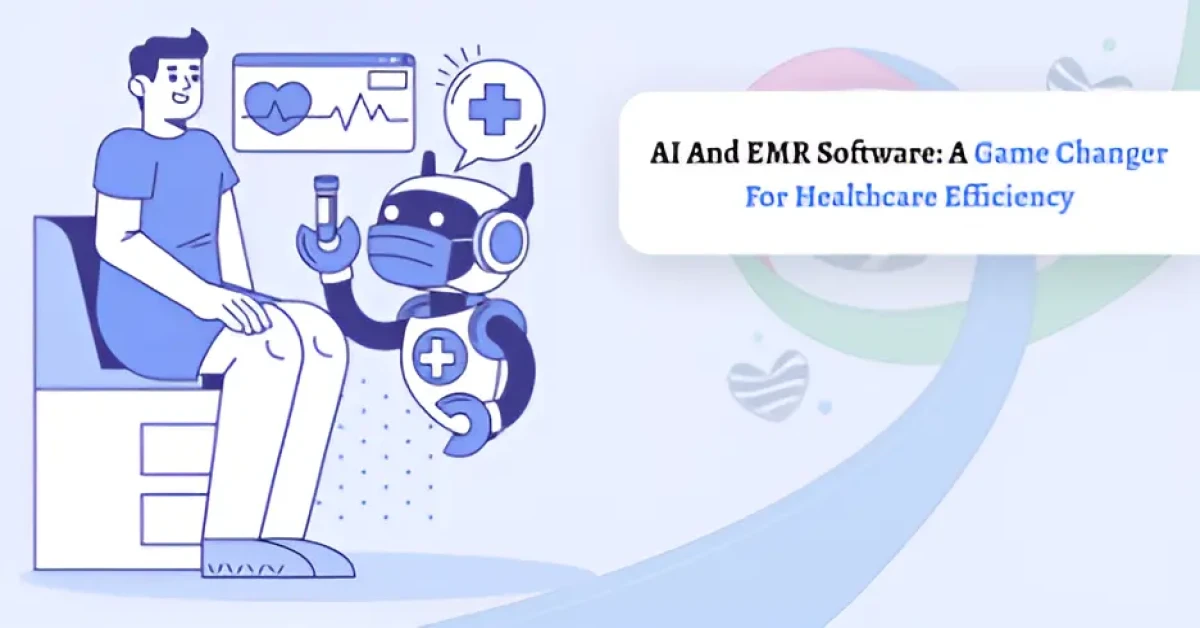
The health care industry is undergoing a revolution in digitization, and the most dramatic among these developments can be the convergence of AI and EMR Software. The combination is revolutionizing patient data management, automation of workflows, and overall medical care provision for physicians. In this paper, we explain how EMR Software—specifically AI-based EMR Software—is revolutionizing the health care industry and why choosing the appropriate EMR software matters to hospitals and medical practices alike now.
What is EMR Software?
EMR Software is an electronic replica of the paper charts in an office. It contains the treatment and medical history of patients in one practice. EMR systems differ from paper records in that they allow health care providers to view data over a time period, view patients overdue for preventive screening, compare patients against established parameters, and improve quality of care overall.
Most people usually have a question such as, "What is EMR Software and how is it different from EHR Software?" While both contain patient data in electronic form, the EHR software (Electronic Health Records) is rendered interoperable with providers, giving an expansive view of the care provided to a patient across a continuum of discrete practices. EMR Software, however, likes to stay within the confines of one health organization.
The Possibilities of AI in EMR Software
AI is contributing immensely towards making EMR Software efficient. Machine learning, natural language processing, and predictive analytics are all enabled by AI-based EMR Software, which can automate clerical tasks, enhance clinical decision support, and reduce administrative burden.
For example, AI can identify high-risk patients by doing patterns in their histories and even propose treatment plans based on successful past experience. In the deployment of a hospital EMR system, this can translate into quicker diagnosis, better patient care, and less error.
Most Important Benefits of AI-Powered EMR Software
1. Improved Efficiency
AI significantly reduces data input by avoiding note-taking and charting. Voice-to-text and transcription features allow physicians to dictate, which are properly transcribed into the system.
2. Reduced Healthcare Professional Burnout
The majority of healthcare professionals burn out from working long hours performing paperwork. AI in EMR Software eliminates workload with tasks like billing, documentation, and scheduling.
3. Improved Patient Care
Physicians can make faster and improved decisions with real-time analysis of data. AI-Powered EMR Software can recognize potential drug interactions or alert providers to abnormal test results in real time.
4. Individualized Treatment Plans
Artificial intelligence software can process huge volumes of data to recommend individualized treatment regimens, especially useful in chronic disease management like diabetes, hypertension, and coronary heart disease.
Free EMR Software: Is It Worth It?
For individual clinics or solo practitioners, Free EMR Software could be a good choice that would seem appealing. There are free software systems with limited features, but not all would have good security features and AI. As a newcomer to the profession, free software could be a starting point, but one must switch to a premium AI-based EMR Software for sustainable success.
EMR System in Hospitals: Real-Life Scenario
Suppose that a big hospital is introducing an EMR system hospital. Doctors and nurses enter patient information into the EMR Software, and it uses AI to analyze the information. The system can alert the doctor if a patient's blood pressure is drastically high, recommend a diagnostic test, or detect a possible allergy to medication.
This real-time data improves patient care and saves lives. Administrative staff also get automated billing, reminders, and compliance management.
The Future of EMR Software with AI
AI integration is just the beginning. The future of EMR Software could include:
- Predictive Analytics: Strong prediction of patient health patterns.
- AI Chatbots: Patient support with appointment scheduling or reminding them to take medicine.
- Remote Monitoring: Wearable device integration into EMR systems to real-time update data.
With every intelligence boost on AI, all one can wish for is brighter, smarter, responsive, and intuitive EMR Software to shape the future of healthcare.
Conclusion
AI is indeed transforming the way we use EHR Software in the healthcare industry. From making us more efficient and improving patient care to preventing burnout and better data management, AI-powered EMR systems are taking us towards bigger, safer, and more personalized healthcare.
Irrespective of whether you are an in-intimate clinic eager to make the leap of free EMR software or a medical center eager to install an AI-based EMR system hospital installation, the future is as transparent as crystal: next-generation EMR Software adoption isn't a wave it's a necessity.



